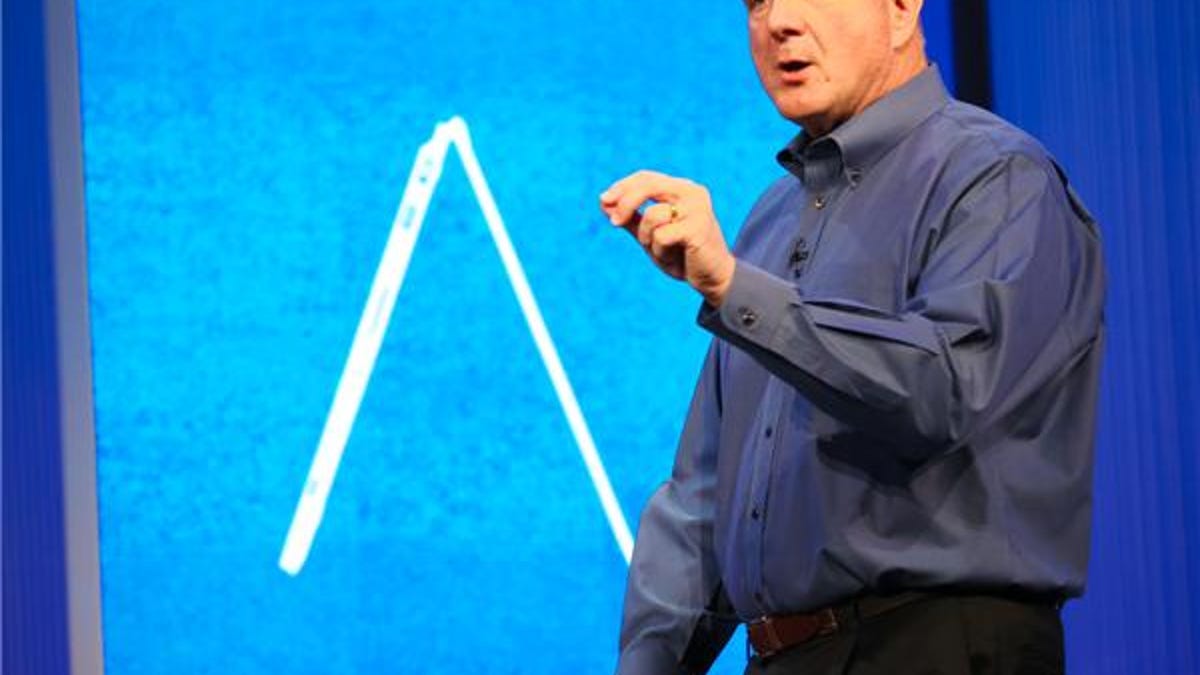Microsoft CEO Steve Ballmer to retire within 12 months
Ballmer will remain at the helm until a successor is chosen, as Microsoft continues to look for brighter signs from its Windows 8 and Windows Phone efforts.

Steve Ballmer will retire from his role as Microsoft CEO within the next 12 months, Microsoft announced Friday.
Ballmer will remain as chief executive until the board of directors chooses someone to succeed him.
"There is never a perfect time for this type of transition, but now is the right time," Ballmer said in a statement. "We have embarked on a new strategy with a new organization and we have an amazing Senior Leadership Team. My original thoughts on timing would have had my retirement happen in the middle of our company's transformation to a devices and services company. We need a CEO who will be here longer term for this new direction."
Ballmer had more to say in an internal e-mail sent to Microsoft employees.
Microsoft's board has set up a committee to pick the company's next CEO. Comprised of board chairman and former CEO Bill Gates and other members of the board, the committee is working with an executive recruiting firm and said it will look at both internal and external candidates to fill the role.
"The board is committed to the effective transformation of Microsoft to a successful devices and services company," committee chairman John Thompson said in a statement. "As this work continues, we are focused on selecting a new CEO to work with the company's senior leadership team to chart the company's course and execute on it in a highly competitive industry."
Following the announcement, shares of Microsoft jumped more than 8 percent in premarket trading and is up about 7 percent since the market open.
Ballmer took over as CEO of Microsoft in January 2000 following Gates' decision to step down. Gates has remained in the picture as chaiman of the board but has focused most of his time and resources in recent years on his charitable foundation.
The news of Ballmer's impending exit comes as Microsoft continues to face significant competitive challenges, especially in the mobile arena. Ballmer himself has been criticized for failing to keep up with the likes of Apple and Android in the mobile world.
In October of 2011, Microsoft's board sent the CEO a signal by
The demand for smartphones and tablets has taken a huge bite out of the PC market, another trend that's hurt Microsoft in recent years. Windows 8 was launched last year in hopes of bridging the gap between computers and mobile devices and also pumping up PC sales. But Microsoft's latest OS has received a mixed reaction at best and has failed to revive the moribund PC industry.
Microsoft has also struggled to map out a clear focus for itself amid the neverending changes in the tech world. And as the company has grown, different divisions have surfaced within, sometimes competing with each other rather than working together.
In an attempt to redirect the company, Ballmer earlier this year revealed the latest reorganization, one designed to
"We are rallying behind a single strategy as one company -- not a collection of divisional strategies," Ballmer said in an e-mail announcing the reorganization. "Although we will deliver multiple devices and services to execute and monetize the strategy, the single core strategy will drive us to set shared goals for everything we do. We will see our product line holistically, not as a set of islands."
Ballmer may have set Microsoft's new strategy in motion, but now he'll probably be gone before seeing how it eventually all plays out.

